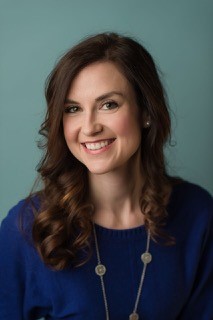OER User Story: An Interview Featuring Dr. Bethany Wrye, Associate Professor of Public Health

A headshot of Dr. Bethany Wrye
Wednesday, April 21, 2021
In an effort to increase awareness of Open Educational Resources (OER) at MTSU, the OER Grant Steering Committee decided to conduct brief interviews of each OER Faculty Advisory Council (FAC) member about their experiences with OER. Members of the FAC will help the Steering Committee evaluate grants after they are submitted on Friday, April 23, 2021. This interview features Dr. Bethany Wrye, Associate Professor of Public Health.
Dr. Bethany Wrye, Associate Professor of Public Health
Introduce yourself to our blog readers
What department do you teach in? Which classes do you most commonly teach? What does your research focus on?
I’m an Associate Professor in the Public Health program, which is housed in the Department of Health and Human Performance. At the undergraduate level, I’ve most recently taught the Honors section of Health and Wellness, Assessment in Community and Public Health, Teaching Sexuality, and Methods of Communication and Marketing in Community and Public Health. At the graduate level, I teach Health Promotion and Theory of Health Behavior. I have a two-pronged research agenda, with one prong focused on moral disengagement and health behaviors, and the other looking at ePortfolio as effective pedagogy.
Tell us about your choice to use OER in your discipline and/or courses
What motivates you to use OER? What was your first experience with OER? Was there a moment when you decided OER was right for your classes?
I currently use OER in lots, but not all, of my classes. The first time I remember implementing OER was several years ago. It was my first semester to teach Methods of Communication and Marketing in Community and Public Health, so my initial plan was to go with the textbook used by the previous instructor. However, 30 minutes into the first class, it became very apparent that the students were just not engaging with the material. I quickly decided to switch gears and use current materials from organizations like the CDC and the National Cancer Institute, as well as current health campaigns instead of the textbook. While the textbook did a good job of giving definitions and organizing material, the students needed current, real world examples in order to grasp the concepts. Since the same definitions were available for free and I was capable of organizing the information via D2L, it didn’t seem fair to force students to also purchase a textbook that I knew they probably weren’t going to read anyway. I didn’t start using the term “OER” for what I was doing until very recently.
Tell us about your students' experiences with OER
How do your students typically react to your use of OER? Can you tell us a story about how OER has supported student learning in one of your courses?
The only students who have been a little skeptical about not using a traditional textbook have been students who prefer a more formal structure in their classes. As long as that structure is provided in the D2L shell, they seem to be fine. I’ve never once had a student complain about not needing to purchase a textbook.
OER Repository Recommendations
What OER repositories and/or research do you recommend for faculty? Please list 1-2 repositories and/or 3-5 research articles/books and a rationale for why you're recommending them.
Honestly, I would recommend that they contact Suzanne Mangrum in the library. MTSU’s library already has a wealth of resources pulled together – they are really making it easy for faculty to find what they need. Apart from that, obvious resources to incorporate would be current materials specific to your field or discipline. For me, that tends to be CDC, WHO, health departments (local, regional, national, and international), resources I find at professional conferences, and prominent schools of public health.
Future of OER at MTSU
What is your hope or vision for OER at MTSU? Where do you see this OER grant taking us as a student-centered, comprehensive university?
I hope it frees faculty to create curricula centered on learning objectives rather than trying to make a textbook work.
I hope it eases student stress levels and the financial burden associated with college.
I hope it encourages faculty to be creative in designing their courses and to use their expertise to make learning experiences/opportunities about which they are passionate (as that translates into courses that are more interesting and engaging for students).


